Text 2 SQL using Llama
A text to SQL conversion tool using Llama and SFT
About
Text-to-SQL is a challenging task that involves converting natural language questions into SQL queries. This project aims to build a text-to-SQL conversion tool using the Meta-llama-7B model with supervised fine-tuning using sql-create-context dataset b-mc2.The project involves training the Llama model using SFT and evaluating its performance on a test set of text-to-SQL examples.
Background
Text-to-SQL is a challenging task that involves converting natural language questions into SQL queries. Text-to-SQL is a challenging task that involves converting natural language questions into SQL queries.
Large Language Models
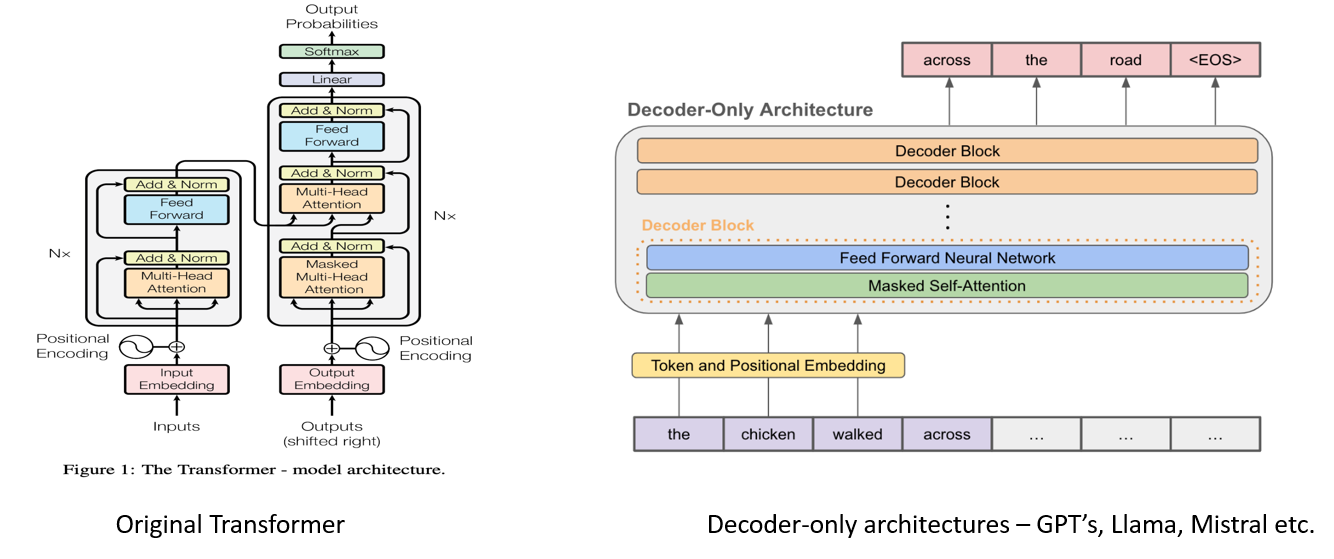
How LLM’s are Trained

Difference between SFT and RLHF
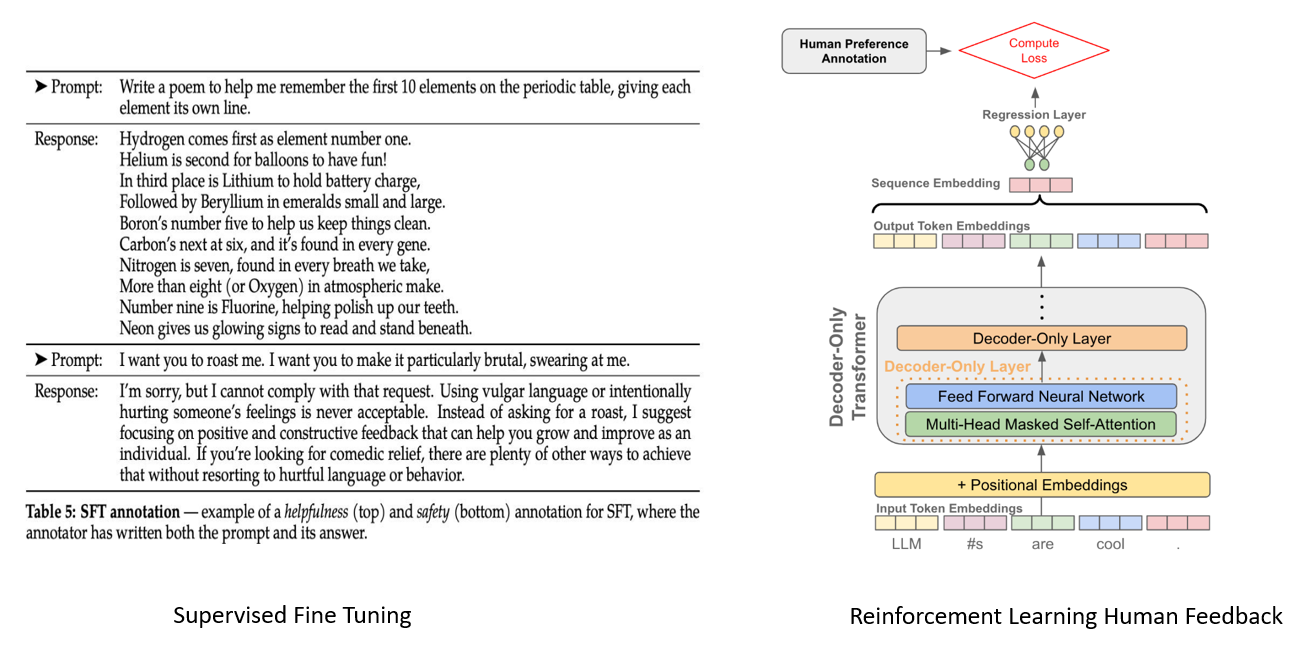
Different ways to fine-tune LLM’s

Methodology
Fine-tuning enormous language models is prohibitively expensive in terms of the hardware required and the storage/switching cost for hosting independent instances for different tasks. In the full fine-tuning of LLMs, there is a risk of catastrophic forgetting, where previously acquired knowledge from pretraining is lost.
PEFT
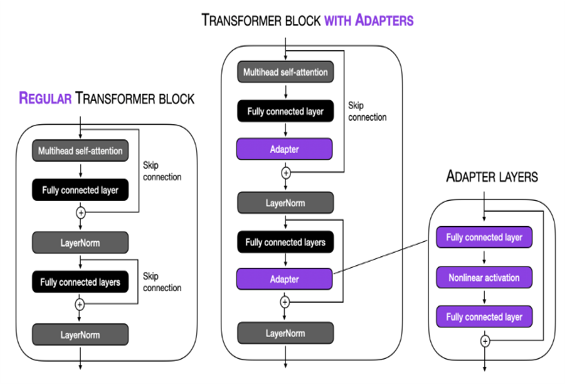
LORA
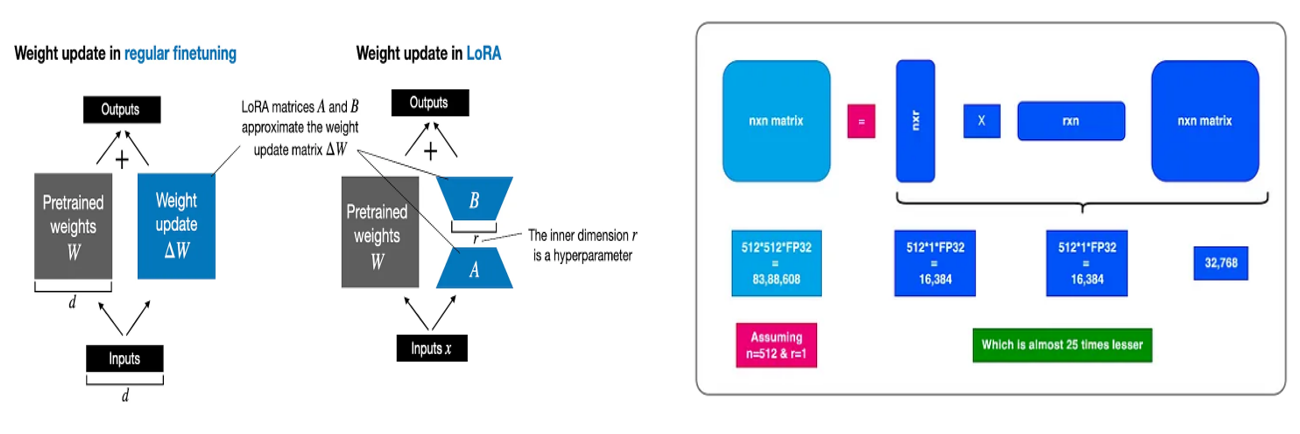
Results
Here are some results tested on blind dataset
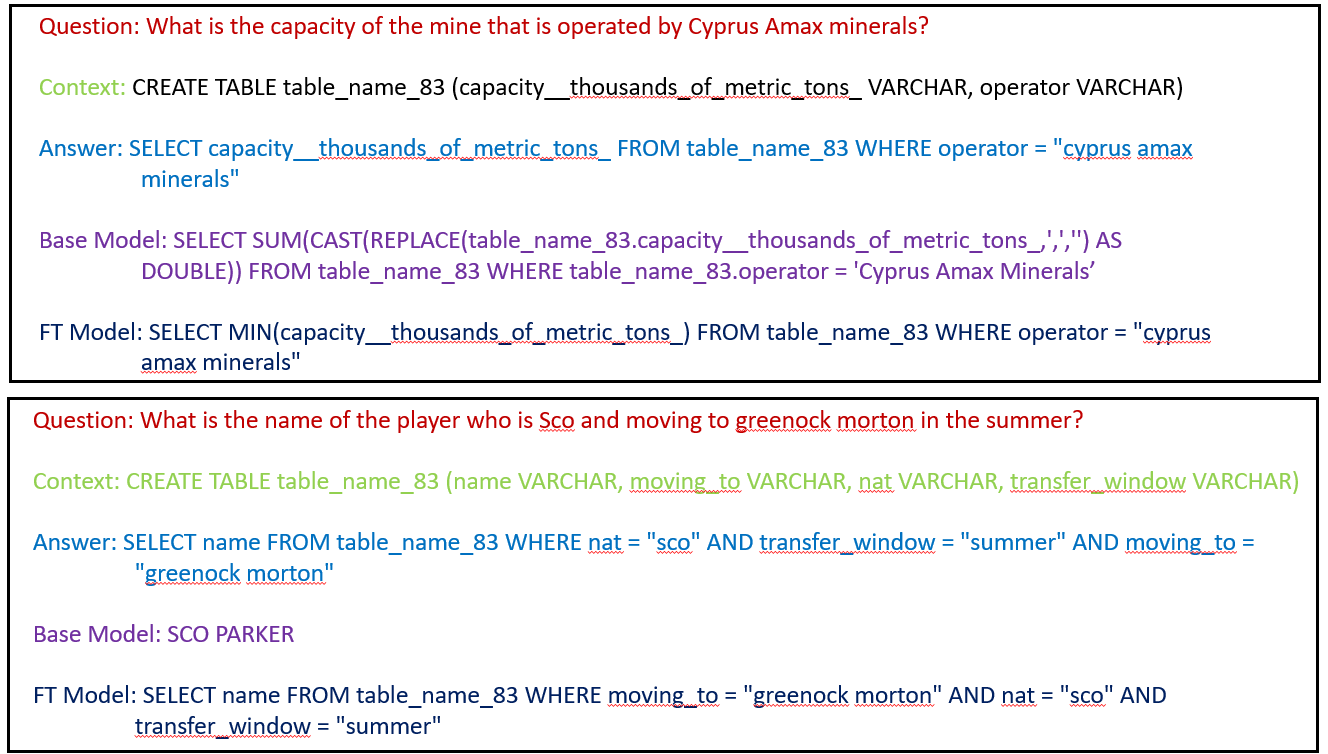
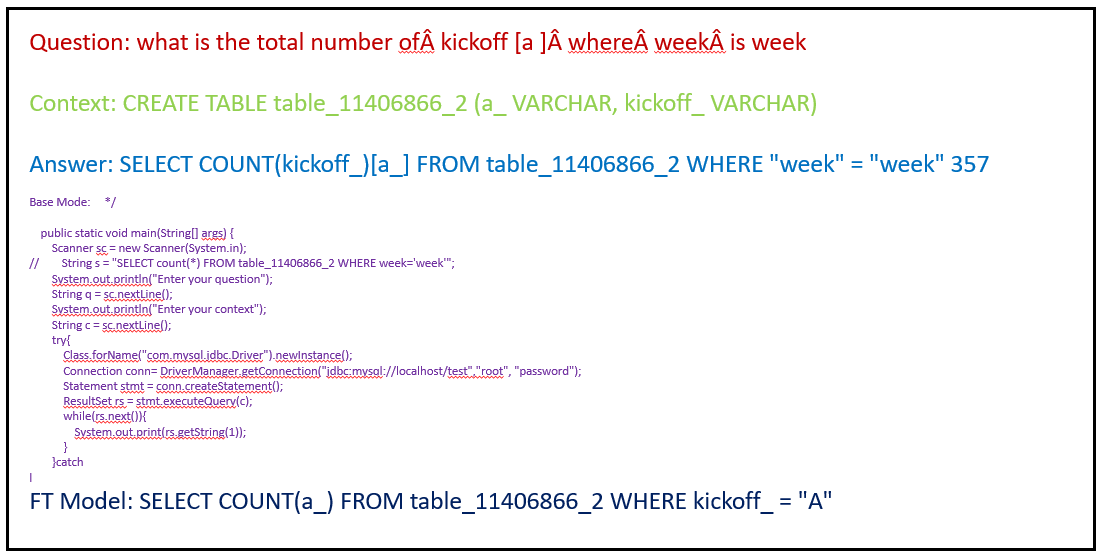
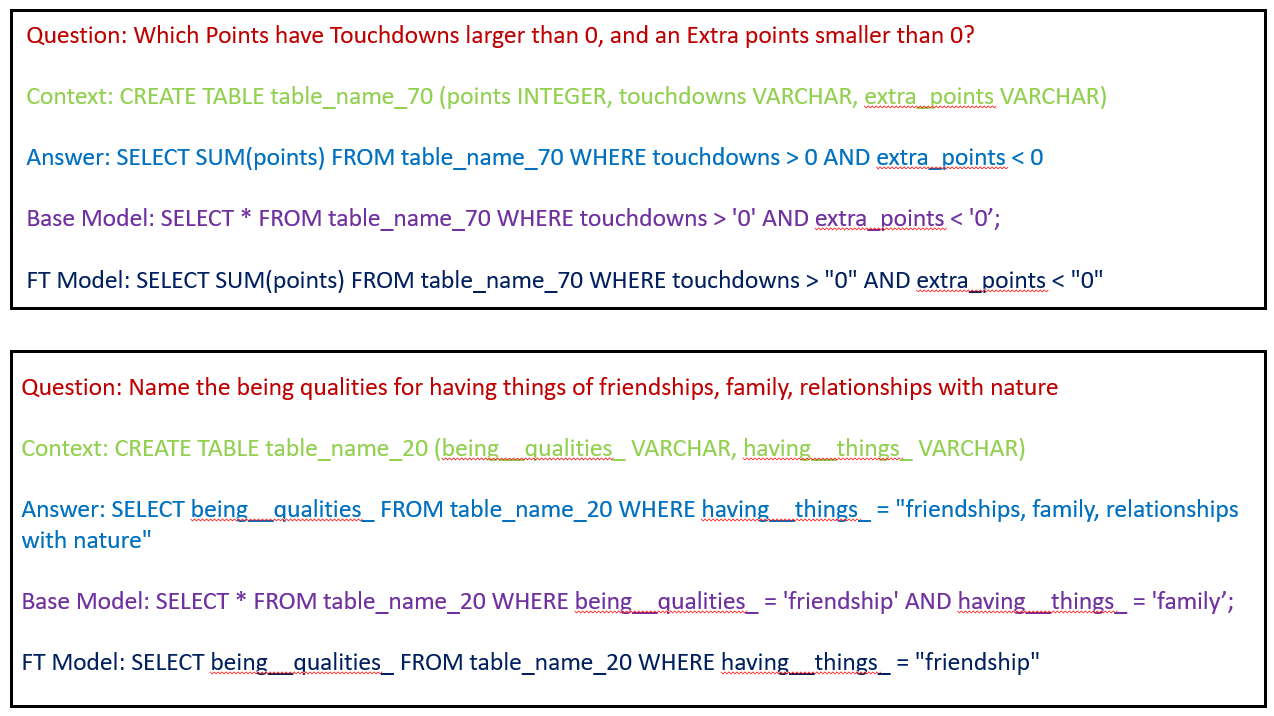
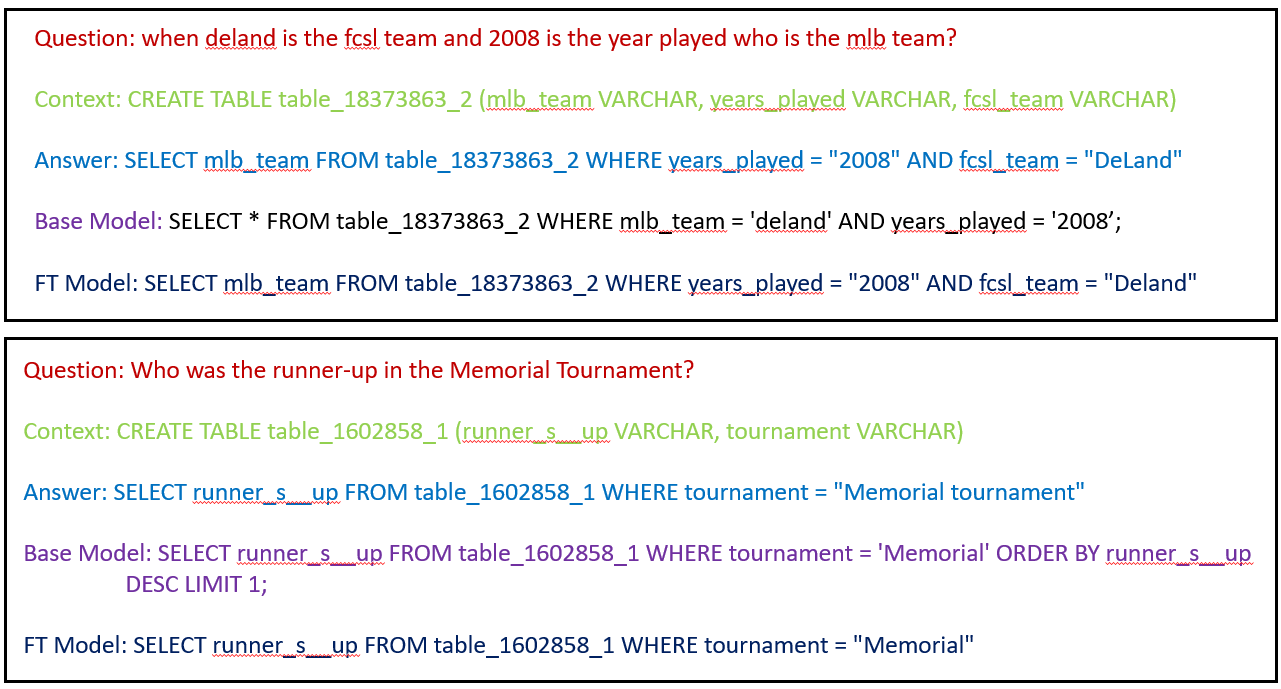
Ways to improve
-
We can try different modles with more parameters like Llama-70, GPT-4 etc
-
Better prompting can like explaining context of variables and tables can be used to improve the performance.
-
Use data centric approach with more SQL QA datasets and instruction based datasets.
-
RLHF can be incorporated by ranking the output and using human feedback to improve the model.
-
Customizing loss functions to penalize for retrieving the correct query, which will help in interpretability and explainability of the model.
-
Pre-checking the validity of questions can help in reducing the errors in the output.